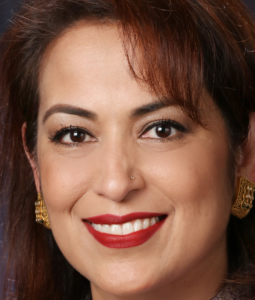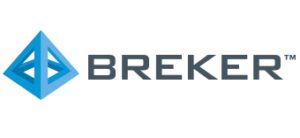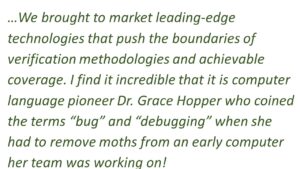
Bridging the Frontier Bob Smith, Executive Director
Bob Smith is Executive Director of the ESD Alliance responsible for its management and operations. Previously, Bob was senior vice president of Marketing and Business Development at Uniquify, responsible for brand development, positioning, strategy and business development activities. Bob began his … More » Maheen Hamid, Silicon Valley Influential Woman and ESD Alliance Governing Council MemberJune 8th, 2022 by Bob Smith, Executive Director
In addition, Maheen was recently named one of Silicon Valley’s 100 most influential women by Silicon Valley Business Journal, selected for her financial experience in deal structuring and operations management for small- to medium-sized businesses. Her strong commitment to entrepreneurship as the way to bring broader change is a valuable trait and a topic we discussed during a recent conversation. Maheen and the other recipients of the Silicon Valley’s 100 most influential women will be honored at an awards ceremony Thursday, June 14, at Signia by Hilton in downtown San Jose, Calif. Smith: Does the semiconductor industry offer a good career path for women? Hamid: Over the years, it is becoming increasingly evident that the semiconductor industry provides the foundational fuel for the technological revolution of modern times. It is an exciting space rooted in fundamental science that enables innovation to propel humankind forward. In addition to the technical challenges to be solved by some of the best and brightest engineers, scientists and technologists, competitive pressures and market dynamics also create interesting career paths in the business and management tracks. Per a 2020 study by GSA and Accenture, gender diversity in the industry remains low, with women comprising about 25% of the entire workforce and less than 10% as roles progress towards management and board level roles. Larger companies have been performing better in recruiting and retaining women. However, studies can only show trends but they do not define the breadth of opportunities available. As companies weather economic ups and downs, focus shifts toward retaining the sharpest problem-solving skills, regardless of the gender behind it or the field of application. Women are naturally tenacious and creative about holistic problem solving. Combine that with the growing confidence that we are capable of achieving extraordinary heights, there is much to be gained by pursuing a career in the semiconductor industry. A small sidebar and a fun fact: Breker Verification Systems is the company I co-founded with Adnan, who has an extraordinary engineering mind in the field of verification. We brought to market leading-edge technologies that push the boundaries of verification methodologies and achievable coverage. I find it incredible that it is computer language pioneer Dr. Grace Hopper who coined the terms “bug” and “debugging” when she had to remove moths from an early computer her team was working on! Fun Fact: Breker boasts an engineering workforce that is greater than 50% women!! Smith: How do you define workplace success? Hamid: Every role at a company has an objective in front of it with various tools and methods one can employ to achieve it. Some of these tools and methods are pre-defined but much remains as a creative exercise for the individual pursuing the objective, which in turn dictate their performance. To me, workplace success is when an individual is able to creatively fulfill his/her potential while pursuing an objective that is meaningful to them; this is true from the janitor to the CEO. There is no one answer for success.
Hamid: In the semiconductor industry, because of its engineering focus, women in engineering have the best opportunities to shine in the management opportunities they can avail versus those in non-technical disciplines. According to the US Bureau of Labor Statistics data from 2015, nearly 47% of the entire US workforce is comprised of women. Despite efforts, only 14% of all professionals working in engineering are women. Hence, within the professional diversity among women in the chip space, the majority are in non-technical fields, which may inherently limit how far they can rise in the management track in revenue impacting functional areas. This industry-specific dynamic notwithstanding, successfully moving into a leadership role can be elusive for women when balancing career, family and personal growth. Be it in the technical or the business field, if women do not have a respectful environment at work and at home, it creates barriers to the growth they can achieve within a given time. Too much energy gets expended on managing expectations and relationships, taking away from what they can accomplish on their merit. I feel it is advantageous for a company to create an environment where this ‘white noise’ disappears for women. In addition, if women focus on playing the long game and set it as an objective to be in an executive position, then it becomes easier to ignore the detractors and set achievable goals for each next stage in the career. Maybe the average age for women in executive positions will be higher than that of men, but we are able to bring a wealth of experience and resilience by the time we are here. Smith: How can industry organizations such as SEMI and the ESD Alliance affect change for diversity and inclusion? Hamid: Industry organizations can enrich mentorship programs for women by featuring women in leadership roles, creating market segment specific networking events not limited to women only, sponsor panel discussions featuring women executives alongside their male peers, and generally showcase the wealth of career opportunities to be availed within the industry. Even though women’s networking events serve as a great venue for women to find mentors, I am not a great fan of women’s only events because it makes it seem like a separated playpen where we can go frolic for a while. To move up the ladder, we have to work alongside our male peers, and the sooner a sense of belonging and equality is normalized, the better. SEMI and ESD Alliance can certainly play a more pivotal role in creating such avenues for social conditioning and integration. Smith: What’s the best advice you received in your career? Hamid: It was from my father and role model, who has lived a life of integrity and set the examples I follow today. As an industrialist in Bangladesh, he always took a stand against injustice in a corrupt business environment ever since he got his start in the 1970s. He remained authentic to his values and was not swept up by narratives defined by others or the system. He showed me how we can blaze a trail of possibilities by remaining true to ourselves and our beliefs. Smith: What’s your best advice to recent graduates of the class of 2022? Hamid: If you can dream it, you can do it. Play the long game while building solid skills toward a leadership role. Be kind to yourself and give yourself time to build inner balance. |
|
|
|||||
|
|
|||||
|
|||||









